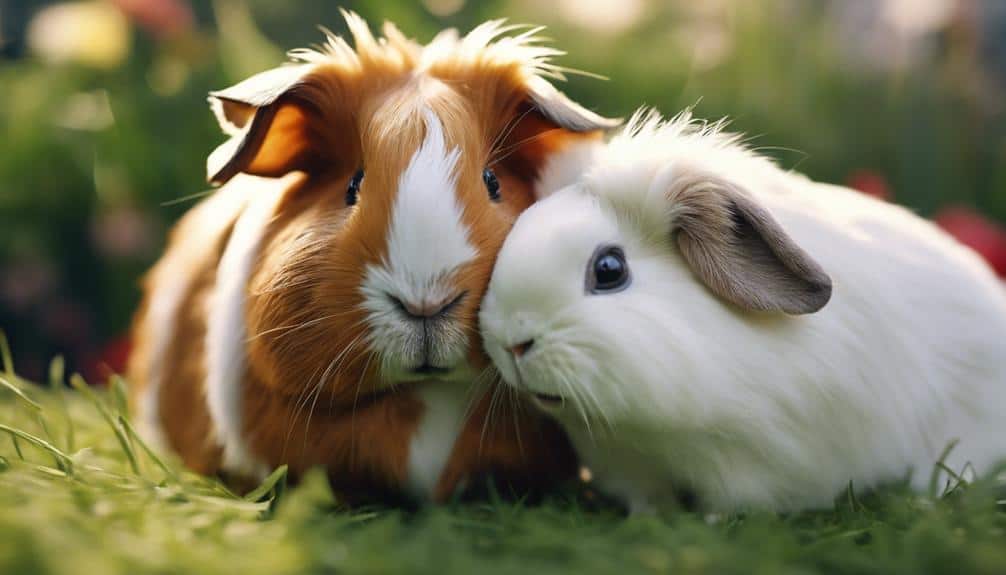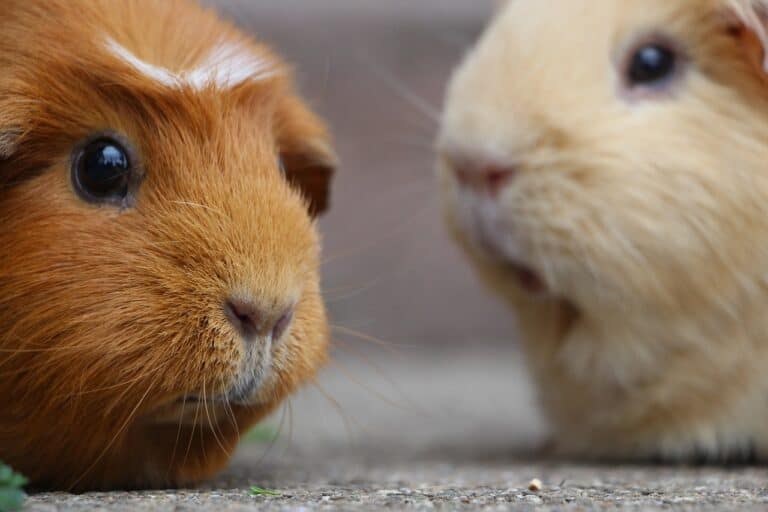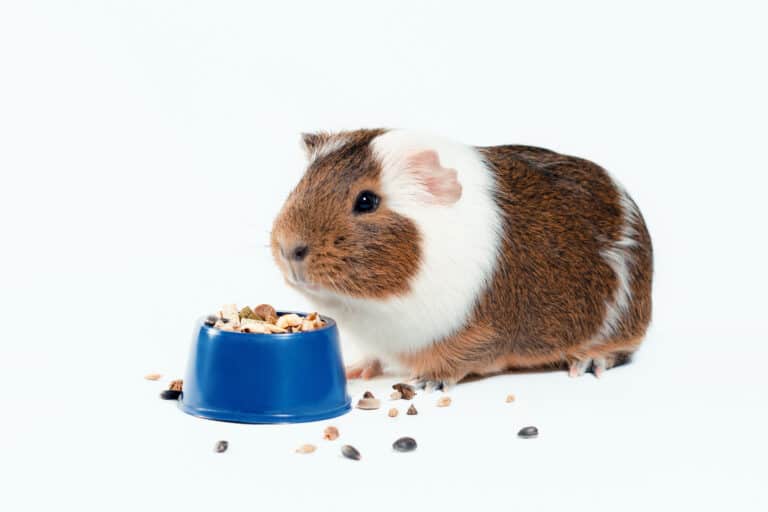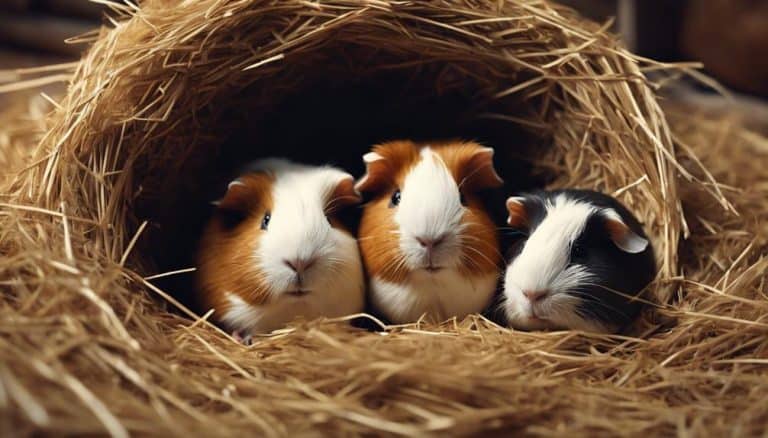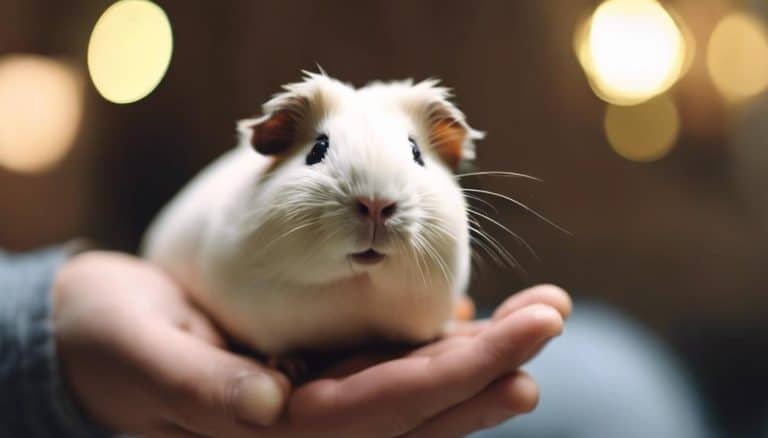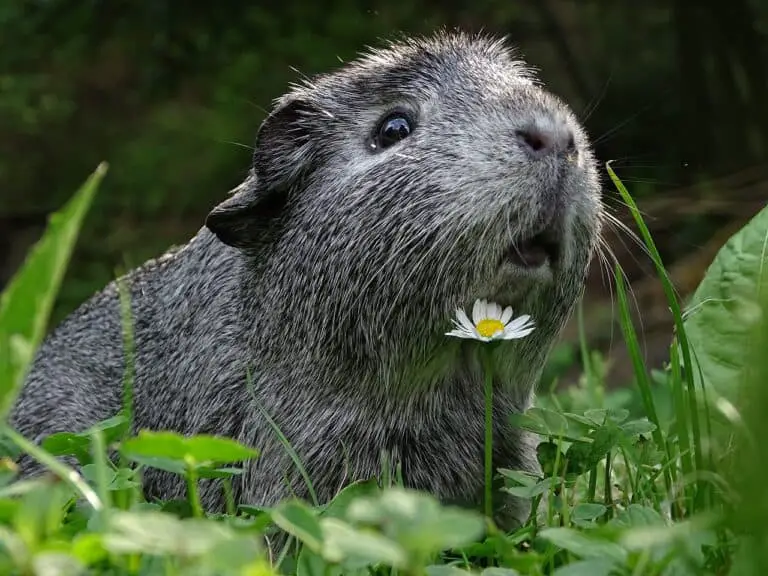Do Guinea Pigs and Rabbits Get Along? Tips for Harmony
When considering the question of whether guinea pigs and rabbits can coexist harmoniously, it is crucial to understand their unique dynamics. While initial introductions may seem promising, the long-term compatibility between these furry companions requires careful consideration and attentive management.
Factors such as social behaviors, dietary requirements, and potential health concerns play significant roles in fostering a peaceful relationship between guinea pigs and rabbits.
Stay tuned to discover valuable insights and practical tips for ensuring their well-being and happiness in shared living spaces.
Compatibility Between Guinea Pigs and Rabbits
When considering the compatibility between guinea pigs and rabbits, it’s important to acknowledge the inherent differences in their behaviors and dietary needs. Guinea pigs and rabbits have distinct communication styles that may lead to misunderstandings when living together. Guinea pigs rely on vocalizations and body language, while rabbits communicate through subtle cues like thumping or ear positioning. These differences can sometimes result in stress or conflicts between the two species.
Additionally, guinea pigs have specific dietary needs that differ from rabbits. Guinea pigs require vitamin C in their diet, as they can’t synthesize it like rabbits can. This can lead to health problems for guinea pigs if their nutritional requirements aren’t met. Additionally, guinea pigs are more susceptible to respiratory diseases, which can be transmitted by rabbits. Providing a safe space for guinea pigs to retreat to and ensuring they’ve separate feeding areas can help mitigate these risks. Neutering rabbits can also aid in promoting a harmonious living environment for both guinea pigs and rabbits.
Understanding Their Different Needs
Understanding the distinct dietary needs of guinea pigs and rabbits is essential for ensuring their health and well-being when co-habitating.
Guinea pigs require vitamin C in their diet, as they can’t synthesize it like rabbits can. Sharing food between rabbits and guinea pigs can lead to health issues due to nutritional disparities. Guinea pigs are more susceptible to health risks like Bordetella bronchiseptica compared to rabbits. Hence, it’s vital to cater to their different dietary requirements individually to prevent any health complications.
Guinea pigs live healthier lives when their diet includes a sufficient amount of vitamin C, whereas rabbits have different nutritional needs that must be met separately. Co-habitation may result in health problems due to the distinct dietary requirements of rabbits and guinea pigs. To ensure the well-being of both animals, it’s important to understand and address these differences in their diets when considering housing guinea pigs and rabbits together.
Tips for Introducing Them Smoothly
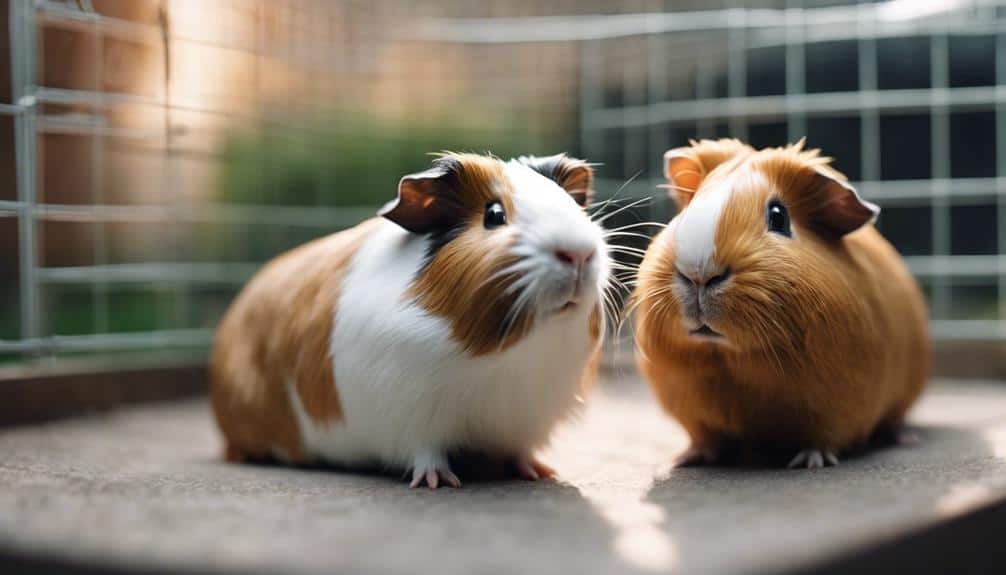
To facilitate a harmonious introduction between guinea pigs and rabbits, gradually acclimate them in a neutral territory to minimize territorial behaviors. A good idea is to keep the rabbit and guinea pigs separate initially, allowing them to get used to each other’s presence from a safe distance.
Since rabbits and guinea pigs communicate very differently, providing a controlled environment for their first interactions is crucial. Neutering rabbits can also help reduce aggressive tendencies, making it easier for them to live together peacefully.
When introducing them, create a safe space where both animals feel secure and supervise their interactions closely. Offering treats and praise for positive behavior can encourage bonding between the rabbit and guinea pigs.
Creating a Safe Living Environment
In guaranteeing a safe living environment for both guinea pigs and rabbits, it’s critical to provide separate hiding spots for each pet to retreat to when necessary. When setting up their habitat, consider the following:
- Neutering small pets: Consider neutering rabbits to reduce aggressive behavior and potential harm to guinea pigs.
- Separate hiding spots: Provide individual spaces for each pet to feel secure and have a place to retreat.
- Feeding area: Guarantee each pet has their own feeding area with separate food bowls to prevent competition and conflicts.
- Monitor interactions: Keep a close eye on their interactions to guarantee a harmonious relationship and step in if necessary.
- Clean living environment: Regularly clean their living space, provide proper bedding, and offer safe toys for mental stimulation.
Maintaining Harmony in Their Relationship
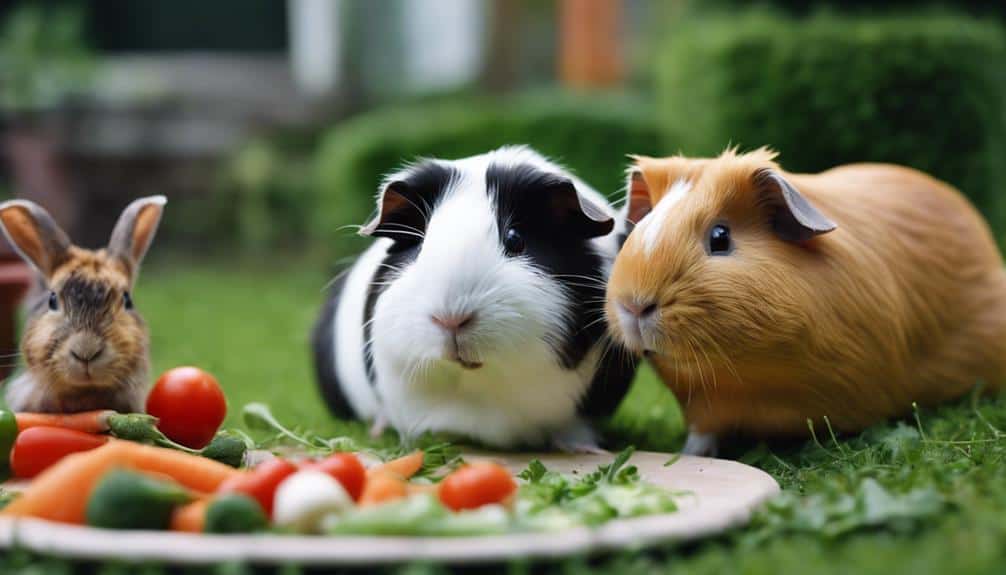
Maintaining harmony in the relationship between guinea pigs and rabbits involves observing their interactions closely and being proactive in addressing any signs of aggression or stress. Providing separate hiding spots for each pet can allow them to retreat and reduce potential stress.
Ensuring to feed guinea pigs and rabbits separately to guarantee they meet their specific dietary requirements. Consider neutering rabbits to prevent any aggressive behavior towards guinea pigs. Seeking guidance from a vet experienced in handling both rabbits and guinea pigs for co-habitation can offer valuable insights.
Monitoring their interactions closely is vital, and intervention is necessary if any signs of aggression or stress arise. By following these steps and guidelines, you can help reduce the likelihood of conflicts and foster a harmonious relationship between your guinea pigs and rabbits. Remember, the well-being and happiness of your pets are paramount, so taking proactive measures is key to maintaining a peaceful co-existence.
Conclusion
To summarize, it’s possible for guinea pigs and rabbits to get along, but it requires careful consideration and monitoring.
Did you know that approximately 60% of introductions between guinea pigs and rabbits are successful with proper guidance and supervision?
By understanding their different needs, providing a safe environment, and following tips for harmony, you can help foster a peaceful relationship between these furry companions.
Remember, their well-being should always be the top priority.

